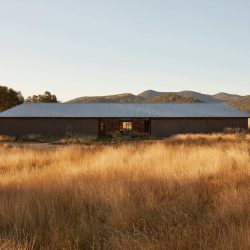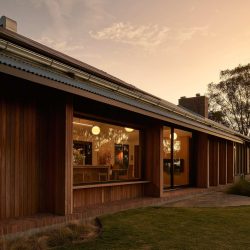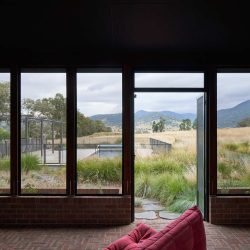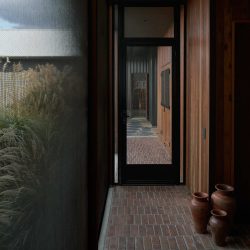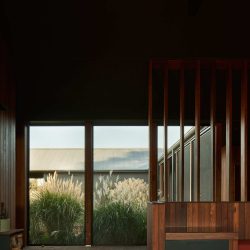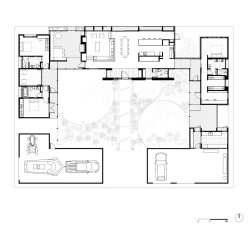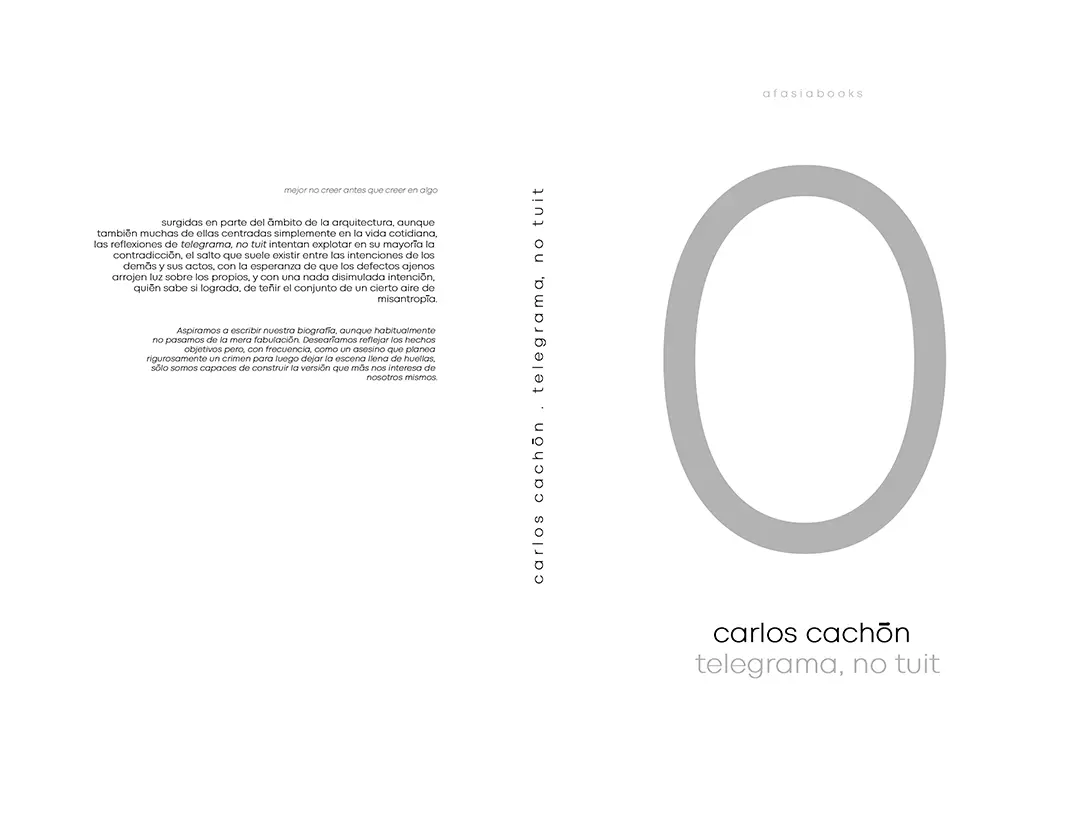
MRTN Architects . photos: © Anthony Basheer . + archdaily
This semi-rural house on ex-grazing land in Tamworth was designed to transform a scrubby, parched piece of land into an energy-efficient contemporary home set within a landscape of regenerated native plants.
This part of Australia is prone to drought, and it was during drought that we first visited the site, which was dry and dusty, with only a few yellow plants clinging to life. This meant that the design of the house was focused not only on regenerating the land and creating a garden but also on resisting drought conditions in the future. The creation of an almost totally enclosed courtyard garden in the center of the house was one way of dealing with this. At the front of the properties, two sheds connected by a roof also connect to the house on either side, forming a square around this central courtyard.
The aesthetics and materials of the house are designed with an agricultural aesthetic, eschewing the brick and tile of the ubiquitous suburban typology, with a metal roof and walls made of metal, timber, and stone. The materials were also chosen to be recessive – including a dull silver roof, black sheets, and ironbark timber. Inside, rooms that are considered “interior” are finished in painted plasterboard, plus timber in the kitchen and tiles in the bathroom, while “outdoor” spaces are finished in brick, timber, and stone.
In the center of the house is the kitchen, dining, and living pavilion, while to the west is a guest wing with bedrooms and a bathroom, while to the east is the main bedroom, ensuite, and walk-in-wardrobe. An outdoor room with a fireplace and roof, enclosed only by insect screens, has proved to be a popular space that the owners use regularly, especially during warmer months.
Connecting all buildings with a singular roof design helped to bring the scale of the house down while also providing undercover walkways between the buildings. The large courtyard helped to establish a garden, while the undercover walkways act as breezeways, similar to those found in Middle Eastern and Mediterranean climates that breeze to arid climates.
MRTN worked closely with the landscape architects SBLA to develop the landscaping for the house, not just in the courtyard but in the gardens surrounding the house. The land was contoured a little to create screening from the neighbors, while the soil was relocated within the site. Native grasses and planting and re-establishing trees were vital to the regeneration of the land.
The project has a solar panel array, north-facing thermal mass, and captures all water, allowing the house to cope with a severe climate that can be prone to drought and also gets cold in winter.
Tamworth House offers architecture that sits low on the land, with elongated forms that recede into the landscape. Providing views of the foothills and a sense of being embedded within the Australian landscape, the finished house is intelligent in design but simple in expression.
_


